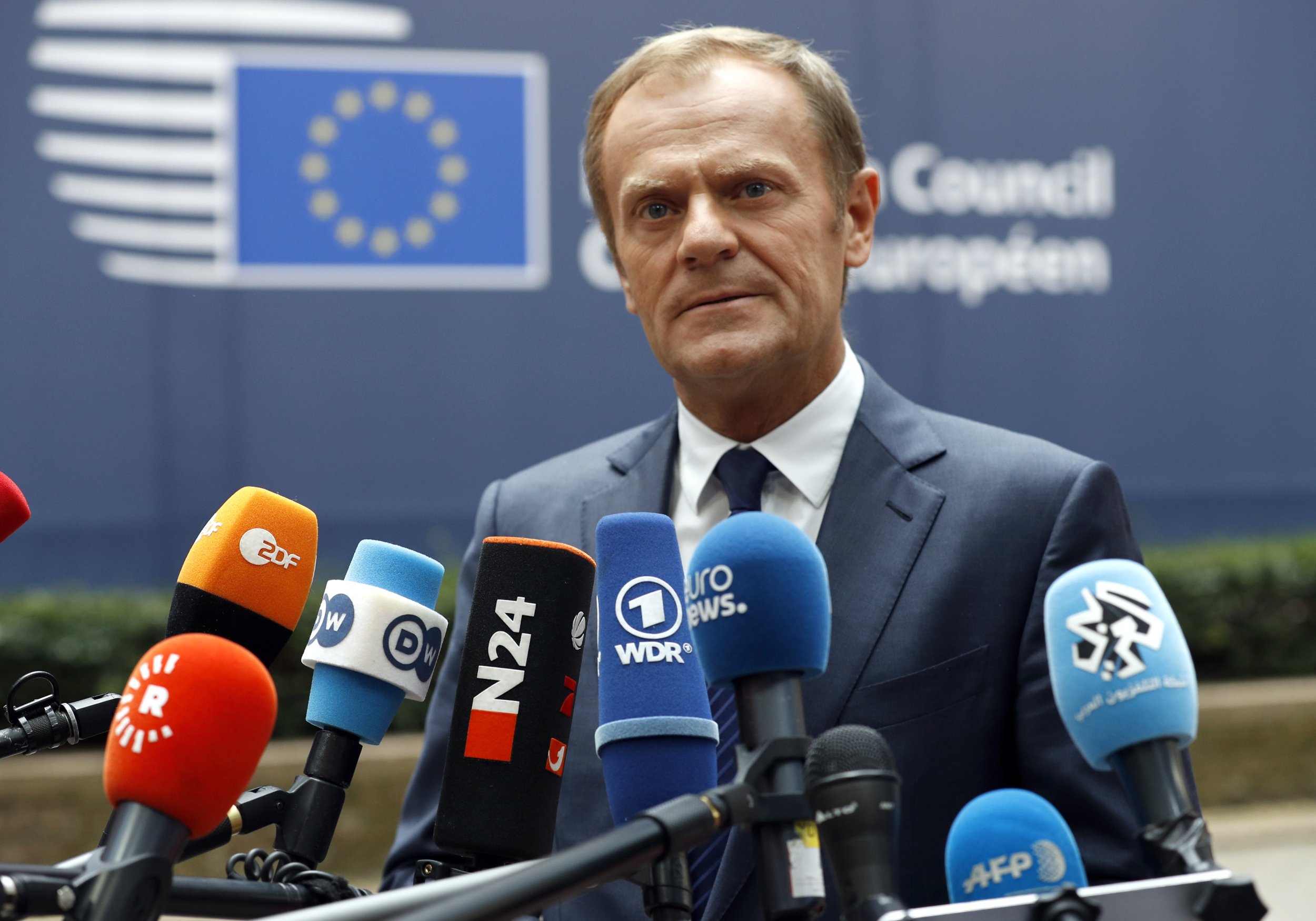
When EU leaders meet this week, Britain will be out of the room. A summit on Friday in Bratislava will see chiefs of all other 27 member states gather to discuss one issue: what next?
As European Commission President Jean-Claude Juncker put it in a speech this week, the EU is facing an "existential crisis." Brexit, the refugee crisis, stuttering trade negotiations, weak growth and populist surges in Austria, the Netherlands, Poland and elsewhere all leave observers questioning its future strength.
In Bratislava, the EU 27 are to start trying to form a plan to turn things round. It may be a very slow beginning—tricky topics such as the refugee crisis or the precise EU negotiating position for Brexit are unlikely to figure heavily on the agenda—but here are four questions the EU needs answers to—and if not now, then soon.
More or less Europe?
Brexit and the referendum on the EU-Ukraine deal in the Netherlands this spring both saw national populations vote against EU policy. Hungary's referendum on the EU's refugee strategy, scheduled for October 2, will likely go the same way. But how to read these votes? Do they indicate that populations need more from the EU so they better understand its benefits, or that they want less meddling from Brussels in national affairs?
In his State of the Union address, Juncker set out the case for the former. "Europe is a cord of many strands—it only works when we are all pulling in the same direction," he said as he announced proposals for more investment and greater defense co-operation. Among those in the other corner are Poland's governing party leader Jaroslaw Kaczyński and Hungarian Prime Minister Viktor Orbán, who have pledged to wage a "cultural counter-revolution" that re-asserts the importance of national identity over European unity. Between the two, some argue for a "two-speed" Europe with different levels of membership.
This is a complex question, and the answer is likely to be nuanced. But the bloc needs to agree on a direction of travel before long.
What does Brexit mean?
British Prime Minister Theresa May is fond of saying "Brexit means Brexit." Not to be outdone, the European Council has its own, characteristically verbose, soundbite: "No negotiations without notification." Both sides can say both phrases as much as they like, but privately they need to decide what they want to give and to get.
For the EU, the central question is how much it wants to punish Britain for leaving.
The negotiations have yet to begin, but some key debates are already apparent. Should the bloc allow the U.K. to sustain anything like its current level of single market access while getting any controls on freedom of movement? Should the U.K. financial services sector be able to keep its "passporting" cross-continental trade arrangements, and at what cost? And is it possible to treat parts of the U.K. that voted to remain, like Scotland, differently from the whole?
What to do with refugees?
The refugee crisis is only intermittently in the media spotlight these days, but it's no less pressing. The deal between Turkey and the EU, which kept some Syrian migrants away from European border, could be starting to break down, and in any case was consistently criticized by human-rights groups. A new policy aimed at forging similar deals with other countries that see migrants to travelling to Europe could face similar issues.
Pressure from mass migration is unlikely to fade soon. Externally, the EU needs to work better with countries that send migrants. Internally, it needs to persuade its members to share refugees more evenly, despite fierce opposition, especially from central European states.
How to make citizens more secure?
Although it was not central to Britain's Brexit debate, multiple extremist attacks on France, Germany and other EU states has made security a top issue for the bloc.
The European Commission suggested on Wednesday that it would seek to shift money in annual EU budgets from less pressing issues like farming and towards security and defence. But how much more money does this need? And how will it be squared with more subsidy-friendly countries like France?
And aside from the money, there are political issues. Can the border-free Schengen Area survive in the face of a growing terror threat? Will national governments share more information to fight shared enemies? And will working together on defense spark Euroskeptics to start yelling about an "EU army"?
Uncommon Knowledge
Newsweek is committed to challenging conventional wisdom and finding connections in the search for common ground.
Newsweek is committed to challenging conventional wisdom and finding connections in the search for common ground.
About the writer
Josh is a staff writer covering Europe, including politics, policy, immigration and more.
To read how Newsweek uses AI as a newsroom tool, Click here.








